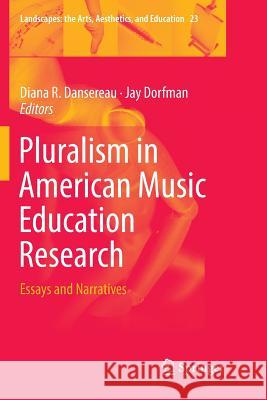Pluralism in American Music Education Research: Essays and Narratives » książka
topmenu
Pluralism in American Music Education Research: Essays and Narratives
ISBN-13: 9783030079482 / Angielski / Miękka / 2019 / 251 str.
Kategorie:
Kategorie BISAC:
Wydawca:
Springer
Seria wydawnicza:
Język:
Angielski
ISBN-13:
9783030079482
Rok wydania:
2019
Wydanie:
Softcover Repri
Numer serii:
000295144
Ilość stron:
251
Waga:
0.37 kg
Wymiary:
23.39 x 15.6 x 1.4
Oprawa:
Miękka
Wolumenów:
01
Dodatkowe informacje:
Wydanie ilustrowane











